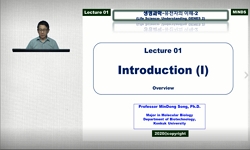<P><B>Abstract</B></P> <P>Oil spills offshore can cause long-term ecological effects on coastal marine ecosystems. Despite their important ecological roles in the cycling of energy and nutrients in food webs, effects on ...
http://chineseinput.net/에서 pinyin(병음)방식으로 중국어를 변환할 수 있습니다.
변환된 중국어를 복사하여 사용하시면 됩니다.
- 中文 을 입력하시려면 zhongwen을 입력하시고 space를누르시면됩니다.
- 北京 을 입력하시려면 beijing을 입력하시고 space를 누르시면 됩니다.
https://www.riss.kr/link?id=A107525343
- 저자
- 발행기관
- 학술지명
- 권호사항
-
발행연도
2018
-
작성언어
-
- 주제어
-
등재정보
SCI,SCIE,SCOPUS
-
자료형태
학술저널
-
수록면
739-748(10쪽)
- 제공처
- 소장기관
-
0
상세조회 -
0
다운로드
부가정보
다국어 초록 (Multilingual Abstract)
<P><B>Abstract</B></P> <P>Oil spills offshore can cause long-term ecological effects on coastal marine ecosystems. Despite their important ecological roles in the cycling of energy and nutrients in food webs, effects on bacteria, protists or arthropods are often neglected. Environmental DNA (eDNA) metabarcoding was applied to characterize changes in the structure of micro- and macro-biota communities of surface sediments over a 7-year period since the occurrence of <I>Hebei Spirit</I> oil <I>spil</I>l on December 7, 2007. Alterations in diversities and structures of micro- and macro-biota were observed in the contaminated area where concentrations of polycyclic aromatic hydrocarbons were greater. Successions of bacterial, protists and metazoan communities revealed long-term ecological effects of residual oil. Residual oil dominated the largest cluster of the community-environment association network. Presence of bacterial families (<I>Aerococcaceae</I> and <I>Carnobacteriaceae</I>) and the protozoan family (<I>Platyophryidae</I>) might have conferred sensitivity of communities to oil pollution. Hydrocarbon-degrading bacterial families (<I>Anaerolinaceae</I>, <I>Desulfobacteraceae</I>, <I>Helicobacteraceae</I> and <I>Piscirickettsiaceae</I>) and algal family (<I>Araphid pennate</I>) were resistant to adverse effects of spilt oil. The protistan family (<I>Subulatomonas</I>) and arthropod families (<I>Folsomia</I>, <I>Sarcophagidae Opomyzoidea,</I> and <I>Anomura</I>) appeared to be positively associated with residual oil pollution. eDNA metabarcoding can provide a powerful tool for assessing effects of anthropogenic pollution, such as oil spills on sediment communities and its long-term trends in coastal marine environments.</P> <P><B>Highlights</B></P> <P> <UL> <LI> Long-term ecological impact on coastal sediment community by an oil spill were accessed by eDNA metabarcoding. </LI> <LI> Residual oils altered the alpha-diversity, beta-diversity and compositions of multiple sedimentary communities. </LI> <LI> The largest cluster of the sedimentary community-environment association network was dominated by residual oils. </LI> </UL> </P> <P><B>Graphical abstract</B></P> <P>[DISPLAY OMISSION]</P>
동일학술지(권/호) 다른 논문
-
- Elsevier
- Yun, Sung-Wook
- 2018
- SCI,SCIE,SCOPUS
-
- Elsevier
- Won, Eun-Ji
- 2018
- SCI,SCIE,SCOPUS
-
- Elsevier
- Lee, Junghyun
- 2018
- SCI,SCIE,SCOPUS
-
- Elsevier
- Eo, Soeun
- 2018
- SCI,SCIE,SCOPUS







 ScienceON
ScienceON







